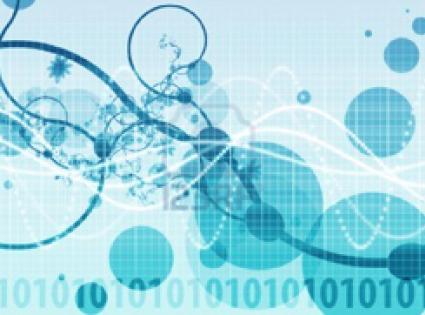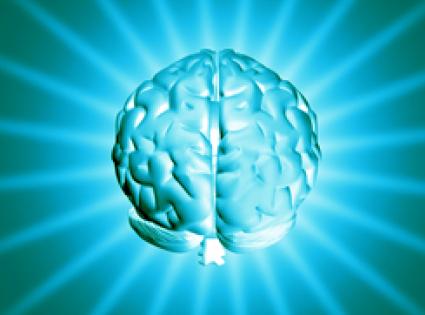Fallacies
Aims of the Course
- To learn about the current situation of theoretical and experimental study in this field.
- To master the basic analytic and assessment techniques for fallacious arguments.
- To understand contemporary discussions related to the nature of fallacies, and to understand the significance of certain fallacies (such as petitio principii) within the wider context of philosophy of language, logic and epistemology.
- To train the student to take positions on problems posed in this field, built upon conceptually articulate, motivated and justified bases.
Contents
Fallacies are characterized by being erroneous arguments that seem to follow correct premises. The aim of this course is, on the one hand, to provide an overview of fallacies (definition, how to identify them, approaches in their study); and, on the other hand, to conduct an in-depth analysis of some of the best-known fallacies to be able to identify the characteristics that turn an argument into a fallacy. As we shall see, in some cases it is not easy to identify these characteristics.
Many modern studies on fallacies not only develop independent theories, but subsume the study of fallacies into a more general theory of argumentation (Groarke 2013). For example, if the argumentation theory adopted is focused on developing the rules that govern argumentative exchanges or on creating patterns to build good arguments, fallacies can be approached as a deviation from the rules or as an erroneous use of the patterns, respectively. This is why fallacies are studied from the point of view of the different argumentation theories, which is the approach that will be followed in this course.
Contents
- What is a fallacy? Definition and review of the different traditions and conceptions of fallacies: logical, pragmatic, dialectic and rhetoric fallacies (Hamblin 1970: chap.3, 7; Tindale 2007: chap.1).
- Logic fallacies: This unit consists of a formal approach to fallacies related to the deductive method for argument reconstruction (Hamblin 1970: chap.6; Walton and Woods 1982: chap. 3, 7, 8, 9; Vega: 2013). The limitations of the formal approach when applied to certain types of fallacies shall also be dealt with.
- Pragmatics and fallacies: Devoted to the relationship between pragmatics and semantics as regards fallacies. We shall study how pragmatic phenomena such as presuppositions and conversational implicatures (see Grice 1989; Walton 1995) affect the interpretation of arguments. We shall also study certain pragma-dialectal aspects (Eemeren & Grootendorst 1995). As specific cases we shall analyse petitio principii, relevance and denying the antecedent fallacies.
- "Ad" arguments and their corresponding fallacies: This unit is devoted to the study of fallacies related to the use of "Ad" arguments (Tindale 2008: chap.6; Hamblin 1970: chap.4). Special attention shall be paid to argumentum ad verecundiam, or arguments from authority, and their corresponding fallacies (Walton and Woods 1982: chap.5).
Basic & Complementary Bibliography
Eemeren, Frans H. Van and Grootendorst, Rob. "The Pragma-Dialectical Approach to Fallacies", in Fallacies: Classical and Contemporary Readings, edited by Hans V. Hansen and Robert C. Pinto. 1995. URL = .
Grice, H.P. Studies in the Way of Words. Harvard University Press. 1989.
Groarke, Leo. "Informal Logic", The Stanford Encyclopedia of Philosophy (Spring 2013 Edition), Edward N. Zalta (ed.), forthcoming URL = .
Hamblin, Charles L. Fallacies. London: Meuthen, 1970.
Tindale, Christopher W. Fallacies and Argument Appraisal Critical Reasoning and Argumentation 2007.
Vega, Luis. La fauna de las falacias, Madrid: Editorial Trotta. 2013.
Walton, Douglas. A Pragmatic Theory of Fallacy (Studies in Rhetoric and Communication Series), Tuscaloosa, University of Alabama Press, 1995.
Walton, Douglas; Reed, Chris; Macagno, Fabrizio, Argumentation Schemes, Cambridge University Press, 2008
Walton, Douglas; Woods, John. Argument: The Logic of the Fallacies, xiv, 273, Toronto and New York: McGraw-Hill, 1982.
Skills
Basic and general skills:
BS6: To have a strong enough knowledge base to be able to innovate in the development and/or implementation of ideas, especially for research purposes.
BS7: The ability to apply the knowledge acquired and to solve problems in new or little known areas within wider (or multidisciplinary) contexts related to their field of study.
BS8: The ability to integrate knowledge and deal with the complexities of forming opinions based on incomplete or limited information, including reflections on social responsibilities and ethics related to the application of their expertise and judgements.
BS9: The ability to clearly and unambiguously express conclusions, stating the knowledge and reasons behind them, to specialized and non-specialized audiences.
BS10: Learning skills to conduct further studies and research in a self-directed and autonomous way.
GS1: The ability to produce readable, detailed and technically correct documents and research work that meets the current international standards for the disciplines. and research work that meets the current international standards for the disciplines.
Specific skills:
SS1: The ability to identify argumentative discourse as it appears in texts, discussions and forums at public level, differentiating it from non-argumentative discourse and, especially, from pseudo-arguments.
SS2: Mastery of the analytical tools of discourse pragmatics and of the main informal-logic, dialectictal and rhetoric models for the assessment and critical evaluation of arguments.
Teaching Methodology
Theoretical classes:
On-site classes shall be given for all of the units structured as follows:
- Presentation of the main concepts and ideas, paying special attention to their critical dimension (explanation and justification of ideas, comparison with other theoretical positions, etc.);
- Handing-out of material for the preparation of the unit, consisting of the basic literature and chosen complementary material so that students can deepen their knowledge of some of the main issues presented.
Papers, seminars and complementary activities
Students are expected to:
- produce a critical summary of one of the basic readings set for each unit;
- produce an individual paper on one of the topics from the course programme. The paper shall be supervised by the teacher of the course, who shall guide the student on its contents and formal presentation;
- participate in the course's forum in the single-debate sessions (seminars or workshops) on different aspects of the course, which will allow for collaborative work between teacher and students.
Tutoring sessions:
Their purpose is to monitor students' understanding of the subject matter presented and to clarify doubts and answer questions about the contents of each of the topics dealt with in the course. This encourages teacher-student communication, which helps students in the learning process and in the production of papers.
Assessment
- Attendance and participation in lectures, tutorial sessions and on-line seminars devoted to the analysis of the compulsory readings: 20%
- Coursework monitoring 40%
- Final exam/paper: 40%
Study and individual work
- Theoretical/Master classes:
- On-site: 10 hours
- Total individual work: 10 hours
- Tutorial sessions:
- Face-to-face: 15 hours
- Total individual work: 15 hours
- Course work monitoring (reading guides and/or summaries of compulsory readings; practical work or exercises):
- On-site: 12 hours
- Total individual work: 31 hours
- Final paper supervised by the teacher:
- On-site: 4 hours
- Total individual work: 28 hours
Overview:
- Total: 125 hours
- Total face-to-face: 41 hours
- Total individual work: 84 hours







